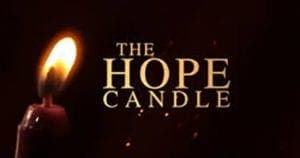 My children are older now, but I was reflecting on Christmas past, when they were little. Two memories, in particular, haunt me in vivid detail. The first was when one of them wanted a Butterscotch Pony, a peculiar equine animatronic plaything so creepy and lifelike that I half-feared I had unwittingly invited a demon into my home (long gone now). This particular toy was also harder to find that year than a second Hope Diamond. I located the last one of the elusive little buggers at Target, bought it, and then realized it was too large to fit into the back seat of my car. I sat on that box in the parking lot for what seemed to be three days while waiting for my wife to arrive with our larger vehicle, all the while avoiding eye contact with the hungry gazes of covetous mothers as they encircled my car and pony-filled box like vultures, just waiting for me to drop my guard so they could swoop in and abscond with my Butterscotch. It was terrifying.
My children are older now, but I was reflecting on Christmas past, when they were little. Two memories, in particular, haunt me in vivid detail. The first was when one of them wanted a Butterscotch Pony, a peculiar equine animatronic plaything so creepy and lifelike that I half-feared I had unwittingly invited a demon into my home (long gone now). This particular toy was also harder to find that year than a second Hope Diamond. I located the last one of the elusive little buggers at Target, bought it, and then realized it was too large to fit into the back seat of my car. I sat on that box in the parking lot for what seemed to be three days while waiting for my wife to arrive with our larger vehicle, all the while avoiding eye contact with the hungry gazes of covetous mothers as they encircled my car and pony-filled box like vultures, just waiting for me to drop my guard so they could swoop in and abscond with my Butterscotch. It was terrifying.
The second memory stood in stark, delightful contrast to the first. I loved it when my wife and I would light the candles on the advent wreath, read a Scripture, and say a prayer. In the midst of the sometimes crass craziness of Christmas, I love reflecting on that little wreath…
The first candle in the advent wreath is the candle of hope. Hope is man’s greatest need. Hope gives man meaning and purpose. In his classic Man’s Search for Meaning, Nazi concentration camp survivor Victor Frankl observed from his fellow inmates that those who survived the horrors of confinement were the ones who sought meaning, who held out hope, even in the depths of outwardly meaningless suffering. Hope for a better future, hope that there is a purpose in suffering, meaning in both victory and defeat, is more important than food and water; indeed, men will willingly do without both, even unto death, if they have hope.
But, hope in and of itself is meaningless. To have hope in hope is to hope in nothing at all. Hope has to have an object to sustain it. But, not just any object. To hope in some temporal, created thing or object is worse than to hope in hope itself. Whether it’s the next job, or retirement, or a new spouse, or our children, or the next whatever we buy or the successful season for that sports team, if those things are our source of our hope, our meaning, that’s idolatry. None of those things can sustain the sheer weight of our hope, our desperate need for meaning. They will all collapse under that weight, taking us right down with them into the depths of despair…
Israel was that way. The people had tried finding their identity as children of Abraham, in a golden calf, and in the meticulous keeping of the Law. But, all of that was hoping in nothing, in things that would bring only death. Their hope had to be in something greater, fixed on something, someone eternal and almighty. Hope that never fails. Hope that assures us, whether our life far exceeds our wildest dreams or crushes all of our expectations, none of it is wasted, all of it happens exactly as God ordains: every heartbeat, breath, laugh, tear, and sigh pregnant with meaning and purpose that resonates in eternity. Hope that we are whole and redeemed and fiercely loved. Hope that is a Person.
Israel’s hope, and ours, had to be in the promised Messiah, the Deliverer who would come and make all things new. And, that Promise was delivered on Christmas Day.
Leave a Reply